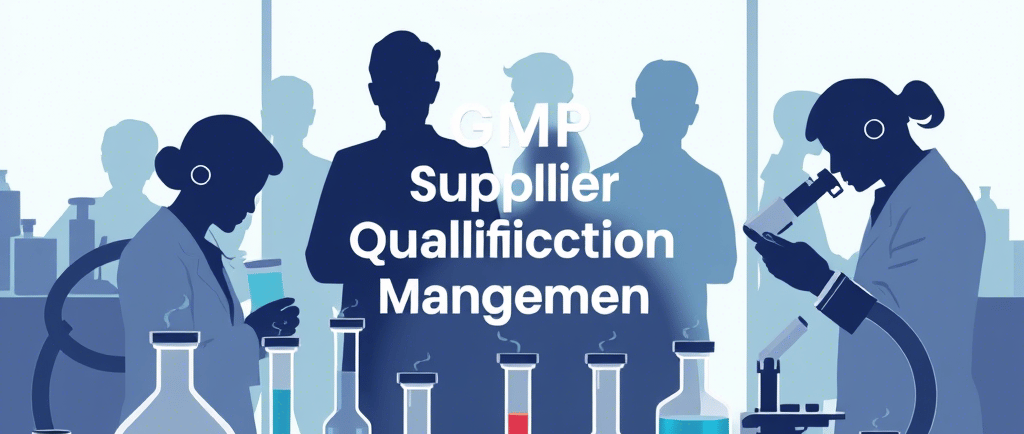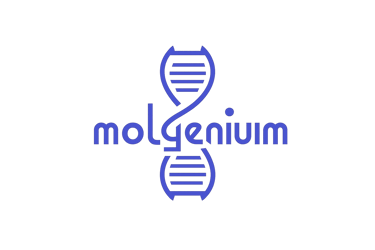Mastering GMP Supplier Qualification and Management
2/8/20257 min read


Introduction to GMP Supplier Qualification
Good Manufacturing Practice (GMP) supplier qualification is a critical process within the pharmaceutical and biotechnology sectors, ensuring that the selected suppliers adhere to stringent quality standards and regulatory requirements. This process is integral to maintaining the integrity and efficacy of products throughout the lifecycle, from initial development to final distribution. The significance of diligently qualifying suppliers cannot be overstated, as they play a pivotal role in the overall quality management system of an organization.
At the heart of GMP supplier qualification lies the objective of ensuring quality compliance. By rigorously assessing potential suppliers, companies can confirm that they are capable of delivering products that meet predefined quality criteria. This aspect is particularly vital in regulated industries where any lapses in quality can have far-reaching consequences. In addition to compliance assurance, supplier qualification is fundamental in minimizing risks associated with delays, quality issues, or even non-compliance from suppliers. Implementing a robust qualification process helps businesses to identify any potential red flags early in the relationship.
Moreover, supplier qualification involves an evaluative approach that includes auditing suppliers, reviewing their quality systems, and verifying their ability to consistently meet product specifications. This comprehensive evaluation not only focuses on the current supplier capabilities but also considers their potential for future growth and adaptation to evolving regulatory standards. Ultimately, an effective GMP supplier qualification process should be designed to not only secure suppliers that meet immediate needs but also foster long-lasting partnerships that enhance the resilience of the supply chain.
To summarize, mastering GMP supplier qualification is quintessential for any organization aiming to uphold stringent manufacturing standards and minimize risks in their operational processes. Through thorough assessment and ongoing management of suppliers, companies can reinforce their commitment to quality and regulatory compliance.
Understanding Risk Assessment in Supplier Management
Risk assessment is a critical component of supplier qualification and management, particularly in contexts where compliance with Good Manufacturing Practices (GMP) is mandatory. The process fundamentally involves identifying potential risks associated with suppliers, analyzing their possible impacts, and implementing strategies to manage these risks effectively. In the realm of supplier management, several categories of risks should be considered, including operational, quality, and regulatory risks.
Operational risks typically pertain to the supplier's internal processes, such as their capacity to deliver products or services on time and their overall efficiency. It is essential to evaluate a supplier’s operational procedures to ensure they align with established standards, thus minimizing the likelihood of disruptions in supply. Quality risks focus on the potential for products or services to fail to meet predefined specifications, which can significantly affect the end-user experience. Rigorous quality assessments should be conducted to ascertain that suppliers adhere to quality assurance practices aligned with GMP guidelines.
Regulatory risks involve the possibility of non-compliance with applicable laws, regulations, and industry standards. Suppliers must be evaluated for their adherence to regulatory requirements relevant to the products or services they provide. This may include certifications, inspections, and audits as part of comprehensive due diligence procedures.
To perform an effective risk assessment, companies often utilize various tools and methodologies. Techniques such as Failure Mode and Effects Analysis (FMEA), risk matrices, and supplier audits can yield valuable insights into potential vulnerabilities within the supply chain. Conducting comprehensive risk assessments prior to onboarding suppliers not only mitigates risks but also lays the groundwork for establishing strong, trustworthy relationships that can enhance overall supply chain resilience.
Effective Supplier Audits: A Key Component
Supplier audits play a critical role in the Good Manufacturing Practice (GMP) qualification process, serving as a means to evaluate the compliance and quality of a supplier's operations. The audit process typically consists of three distinct phases: preparation, execution, and follow-up. Each phase is integral to ensuring that the supplier meets the required standards and can deliver products that align with regulatory expectations.
The preparation phase involves meticulous planning where the audit scope, objectives, and criteria are clearly defined. It is essential to develop a comprehensive audit checklist, which outlines specific areas to be examined, including quality control systems, documentation practices, and facilities management. Effective preparation also includes gathering relevant supplier documentation, such as previous audit reports, standard operating procedures (SOPs), and regulatory certifications, to facilitate a focused assessment during the audit.
During the execution phase, the audit team conducts the assessment on-site or remotely, depending on the circumstances. This includes interviews with key personnel, visual inspections of production areas, and a review of records to verify adherence to GMP regulations. Engaging effectively with the supplier's team during this process fosters transparency and helps identify potential areas for improvement.
After the audit is completed, the follow-up phase ensures that any identified issues are addressed promptly. It is essential to document findings meticulously, as this creates an official record that can be referred back to during future audits. Regular supplier audits not only ensure compliance with GMP standards but also promote accountability by establishing a culture of continuous improvement. Best practices involve providing constructive feedback to suppliers and encouraging dialogue to enhance the overall quality of the partnership.
Optimizing Supplier Relationships for Quality and Cost
In the realm of Good Manufacturing Practice (GMP), balancing supplier quality with cost-effectiveness is crucial for businesses aiming for sustainable growth. To achieve this balance, organizations can employ several strategies that focus on negotiation techniques, effective communication, and fostering long-term partnerships.
Negotiation plays a pivotal role in establishing favorable terms that satisfy both parties. Companies should engage in thorough market research to understand realistic pricing structures for specific materials and services. This knowledge empowers them during negotiations, allowing them to advocate for competitive rates while ensuring that quality standards are not compromised. Building rapport with suppliers through mutual respect and understanding can often lead to more favorable terms, such as volume discounts or better payment structures.
Effective communication is another cornerstone of optimizing supplier relationships. Regular check-ins and feedback cycles create an environment of transparency that helps in addressing concerns proactively. By clearly articulating quality expectations and timelines, organizations can minimize misunderstandings that may impact supplier performance. Utilizing collaboration tools can also enhance the efficiency of communication, enabling real-time updates and feedback.
Long-term partnerships with suppliers often yield significant benefits. Companies that invest time in nurturing these relationships may find that suppliers are more willing to prioritize their needs, adopt innovative solutions, and offer preferential pricing over time. Case studies have demonstrated that businesses which maintain strong, ongoing relationships with their suppliers often experience enhanced reliability in product quality and service delivery.
In conclusion, achieving a balance between supplier quality and cost-effectiveness requires a multifaceted approach. By leveraging effective negotiation techniques, fostering clear communication, and building long-term partnerships, organizations can optimize their supplier relationships. This not only ensures consistent quality but also contributes to overall operational efficiency and cost savings.
Demonstrating Supplier Oversight During Inspections
Effective supplier oversight is critical during inspections, particularly within the context of Good Manufacturing Practices (GMP). It is essential to establish a structured approach to ensure that suppliers consistently meet the required quality standards. Preparing for inspections involves a comprehensive review of documentation that evidences supplier compliance with GMP regulations. This preparation should include evaluating audit reports, quality control data, and any corrective actions taken in response to previous inspections. By methodically organizing these documents, companies can facilitate a smoother inspection process, demonstrating their commitment to quality and compliance.
Documentation plays a pivotal role in showcasing supplier adherence to GMP standards. Keeping accurate records of supplier evaluations, training certifications, and audit findings can significantly support the case for supplier competence and reliability. It is advisable to track key performance indicators (KPIs) and conduct regular assessments to identify trends or issues in supplier quality. When quality concerns do arise, it is vital to document them accurately, noting their impact and the steps taken towards resolution. This comprehensive method not only aids in internal assessments but also serves as proof of due diligence during inspections.
Furthermore, effective communication with regulatory bodies is essential when it comes to supplier performance. Establishing a transparent and constructive relationship can facilitate a better understanding of compliance issues and resolutions. When quality concerns surface, it is crucial to communicate the context and corrective measures undertaken to mitigate risks, ensuring regulatory bodies are informed and confident in the firm's oversight processes. Through proactive engagement and documentation, companies can significantly enhance their supplier management practices, thus fostering a culture of continuous improvement and integrity that aligns with GMP standards.
Ensuring Compliance Throughout the Supply Chain
Maintaining compliance throughout the supply chain is paramount for organizations engaged in Good Manufacturing Practices (GMP). A strong focus on compliance helps in mitigating risks associated with supplier relationships. Regulatory frameworks, such as the FDA’s Current Good Manufacturing Practices and ISO standards, establish guidelines that suppliers must adhere to in order to ensure product quality and safety. These regulations serve as a foundation for building robust supplier qualification processes, ensuring that vendors meet the requisite standards before they are incorporated into the supply chain.
Additionally, understanding the specific requirements of various regulatory bodies is crucial. Each organization may face distinct compliance challenges based on their geographic location and the nature of the products they manufacture. Regular training and updates regarding these regulations can assist in maintaining high compliance levels. Monitoring suppliers for adherence to these frameworks must be a continual process rather than a one-time assessment, emphasizing the necessity of continuous evaluation throughout the partnership.
Continuous monitoring and periodic reviews form a core aspect of quality assurance within GMP supplier management. These processes entail not only tracking supplier performance but also assessing their compliance with the required certifications and operational standards. Regular audits can provide insights into potential areas of non-compliance, allowing organizations to address issues proactively before they escalate into larger problems. Furthermore, these reviews foster a culture of transparency and accountability among suppliers, reinforcing the importance of adhering to quality standards.
By prioritizing compliance throughout the supply chain, organizations can enhance their overall operational integrity and build stronger relationships with suppliers. This diligence not only safeguards product quality but also secures brand reputation, ultimately contributing to the long-term success of the organization in a competitive market.
Conclusion: Best Practices for Supplier Qualification and Management
In the realm of Good Manufacturing Practices (GMP), the significance of rigorous supplier qualification and management cannot be overstated. Throughout this blog post, we have explored various strategies that companies can implement to enhance their supplier management processes. These best practices not only help in mitigating risks but also contribute to maintaining product quality and ensuring compliance with industry standards.
One of the primary takeaways is the importance of performing thorough due diligence during the supplier qualification phase. This process should encompass a comprehensive assessment of the supplier’s quality management system, production capability, and adherence to GMP standards. Additionally, conducting audits and inspections can provide valuable insights into the supplier’s operational practices, enabling businesses to make informed decisions regarding their supply chain partners.
Furthermore, establishing clear communication channels with suppliers is crucial. Continuous dialogue facilitates the sharing of expectations, resolves potential issues promptly, and fosters a collaborative relationship. By engaging suppliers in discussions regarding their quality initiatives and compliance efforts, organizations can reinforce the significance of maintaining GMP standards.
Moreover, it is essential to regularly monitor and evaluate supplier performance through Key Performance Indicators (KPIs). This ongoing assessment allows businesses to identify areas for improvement and take corrective actions when necessary. By employing systematic performance reviews, companies can ensure that suppliers maintain the desired level of quality and compliance throughout the partnership.
Ultimately, implementing these practices fosters not only stronger supplier relationships but also enhances overall operational efficiency. By prioritizing supplier qualification and management, organizations can significantly reduce risks associated with the supply chain, thus contributing to delivering superior products to the market. Therefore, adopting these strategies is paramount for any company aiming to excel in an increasingly competitive environment.
Molgenium – Empowering Pharma Excellence Through Knowledge.
© Molgenium 2025. All rights reserved.
